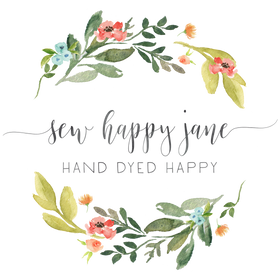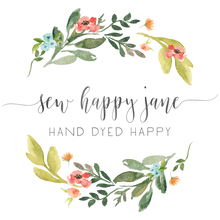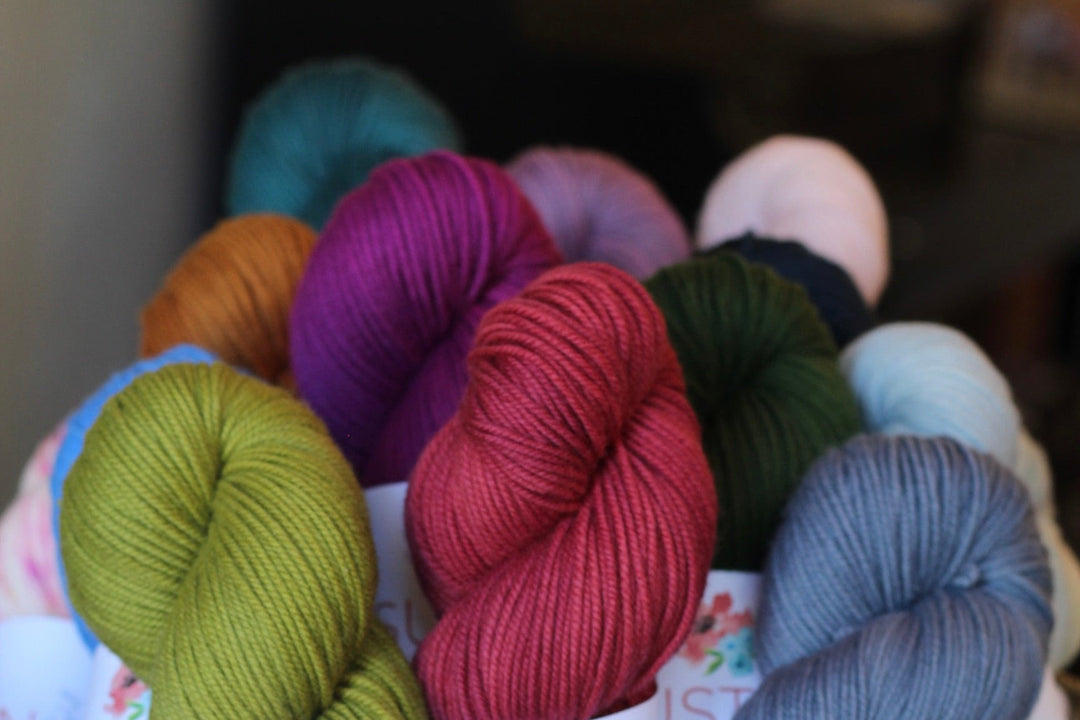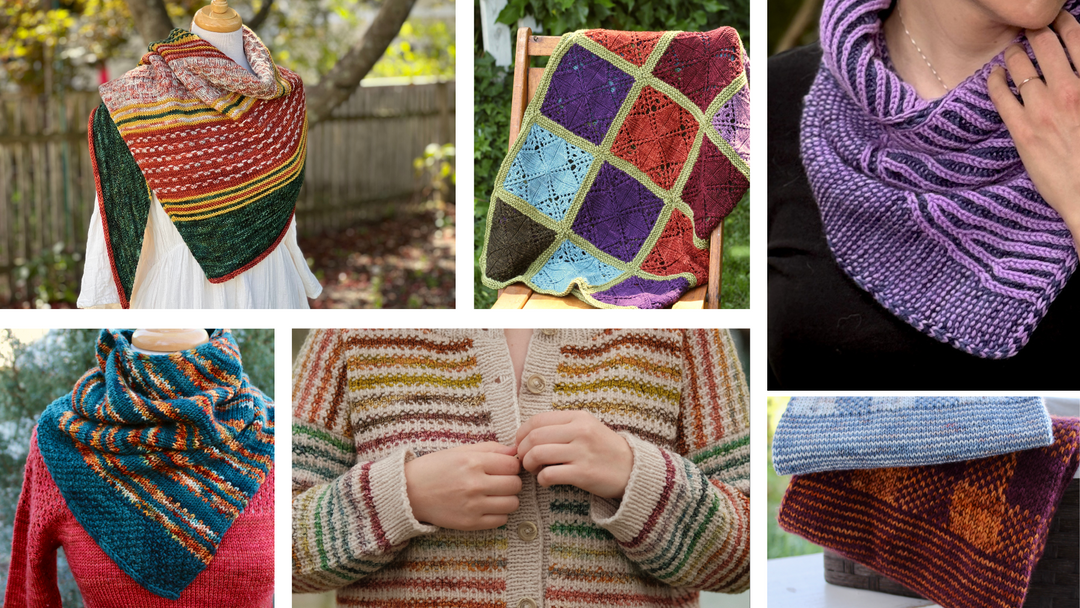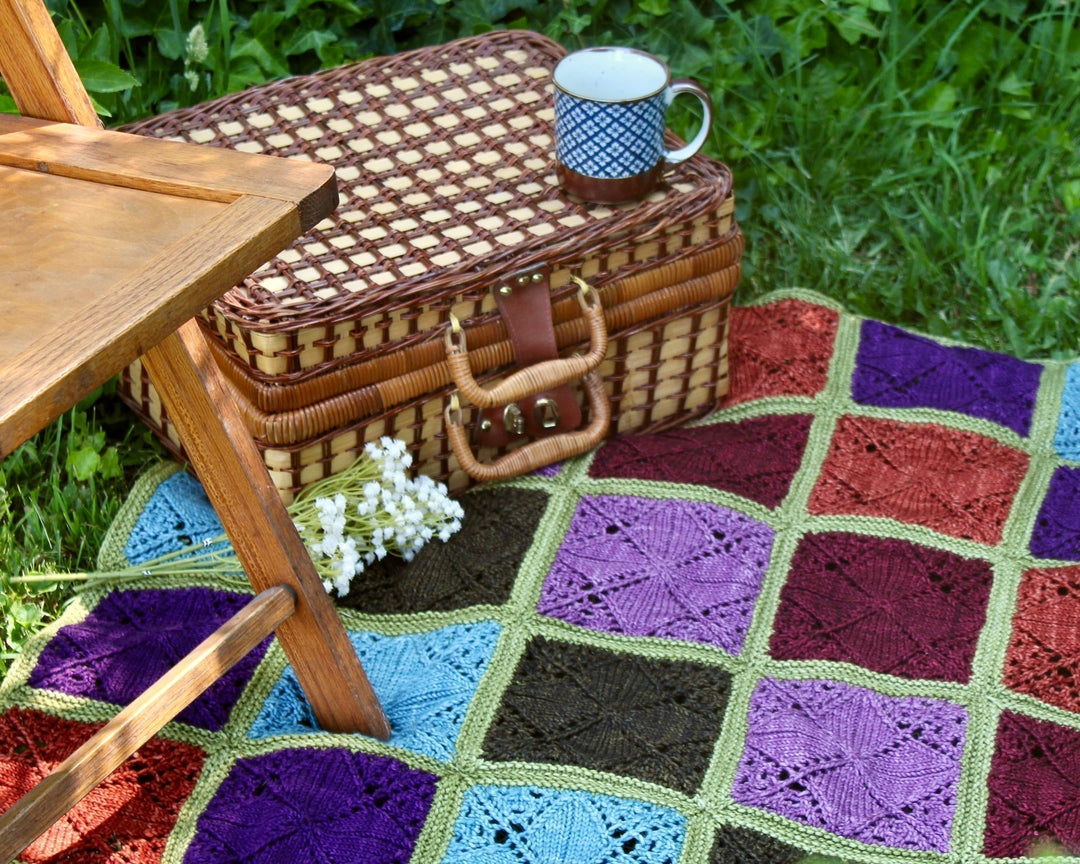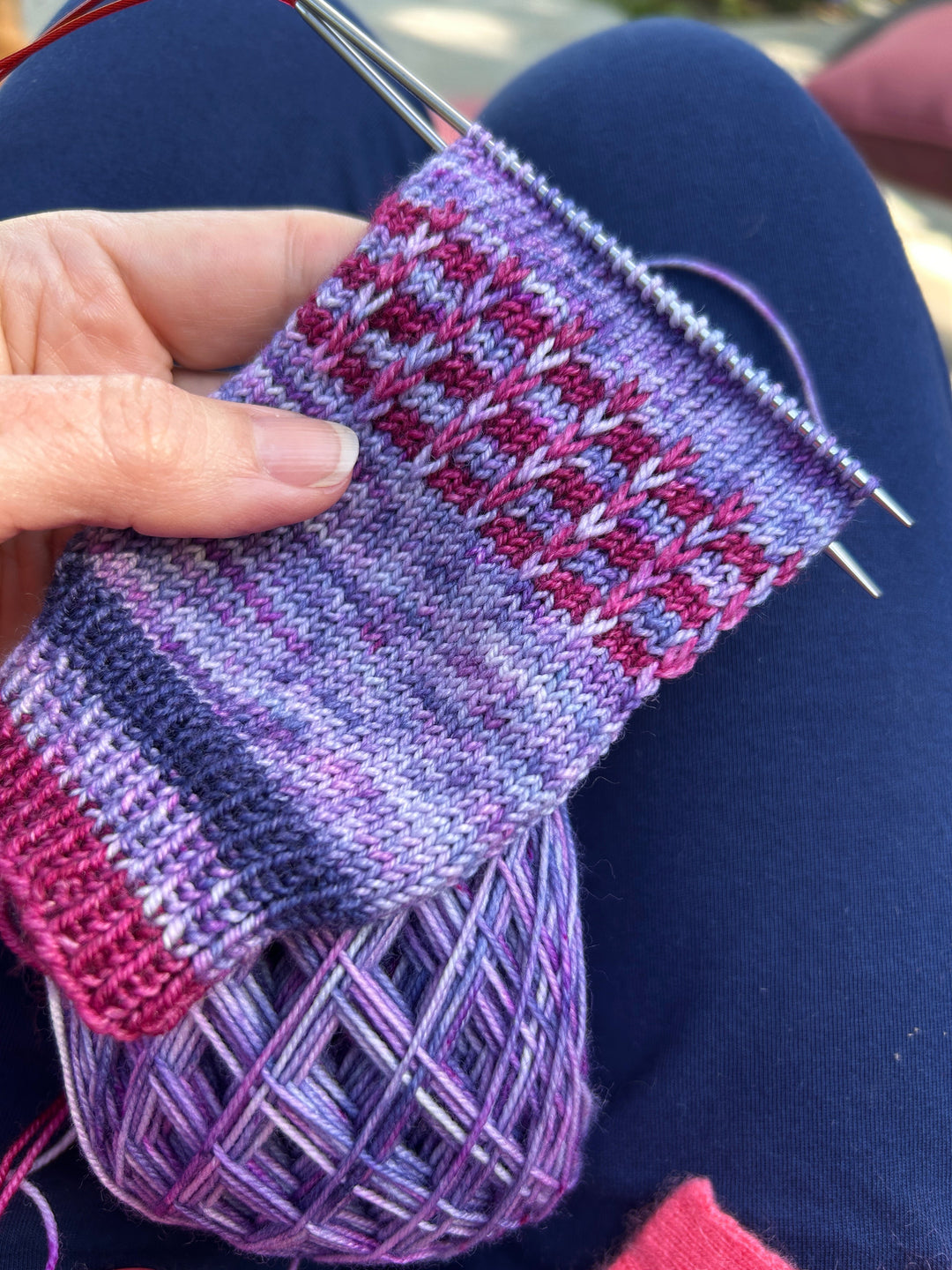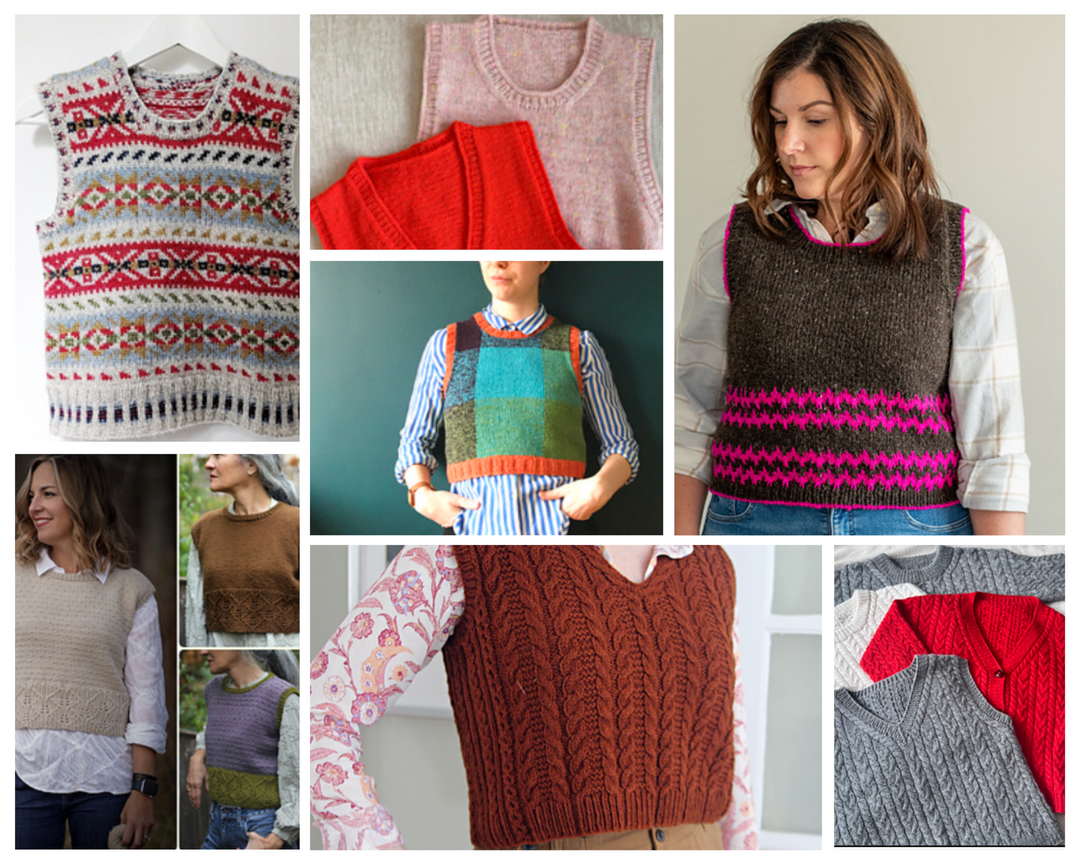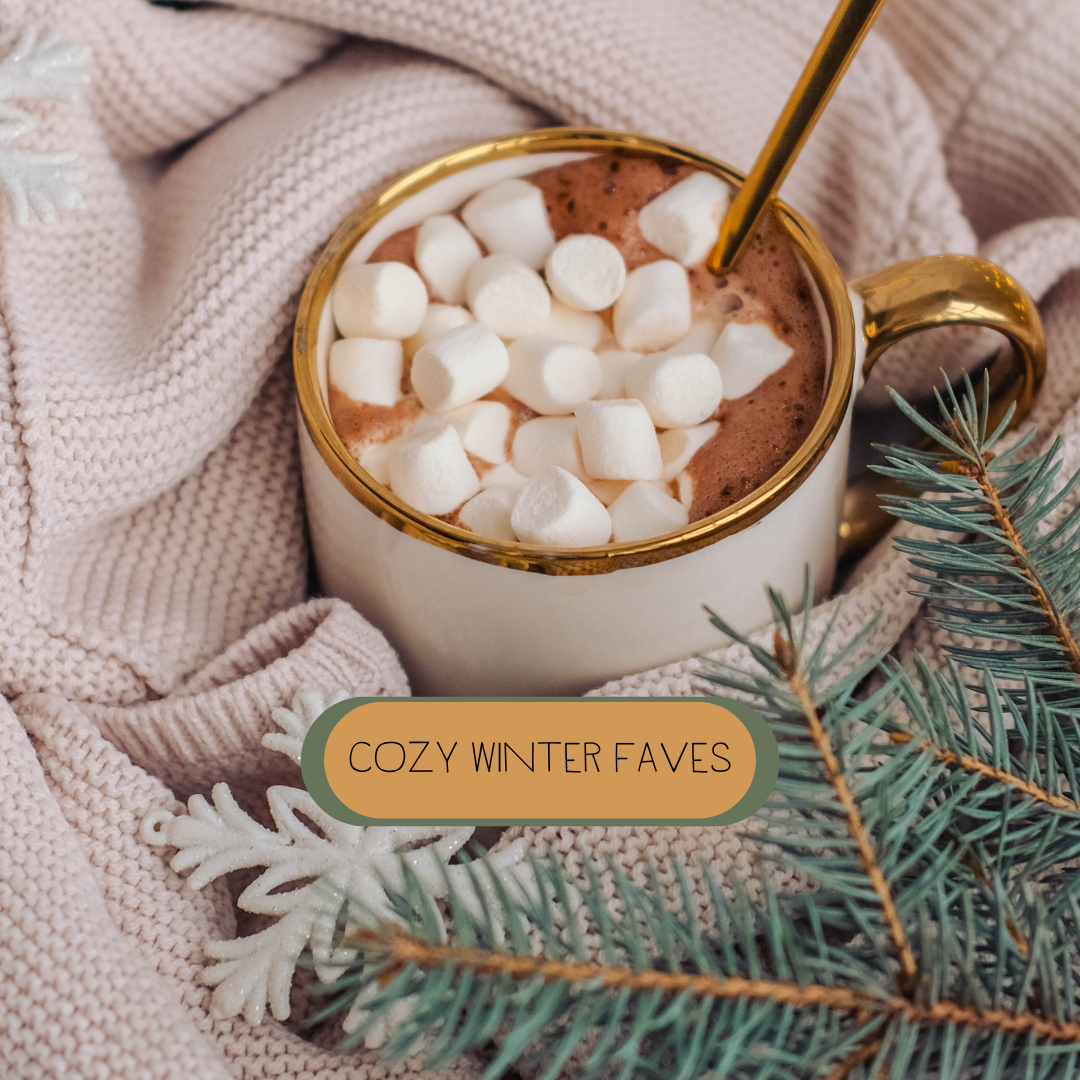I don't know about you, but I really appreciate having a pretty good idea what kind of result I'm going to get when I purchase hand dyed yarn.

I remember very vividly the first skein of hand dyed yarn I ever purchased. I was on vacation visiting a local yarn shop, and they carried a nice selection of a big name brand I had been coveting.
I spent hours standing in that display trying to choose my one precious skein. Finally I decided I would knit a one skein shawl in a brilliant red colorway with jewel tone variegation. I thoughtfully chose my knitting pattern and wound my yarn. Not long after I cast on I realized something was happening that made me really sad- this skein was dyed with long repeats of the deep red and long, flashy repeats of the other colors. This technique created a very zig zaggy lightening bolt pattern I simply did not like. I actually tried cutting the yarn and pulling it out of the cake to find different sections of the skein I liked better to stop this patterning.
That did not work. In the end I put the yarn in a bag and left it to have a think. It wasn't the fault of the yarn, really. I didn't know enough at the time to realize that yarn dyed with long repeats of color would create what I now know to be flashing/pooling.
(Check out this blog post for more information on how to spot skeins that will pool or micro stripe.)
There's nothing wrong with flashing, pooling, and micro striping- as long as you like that sort of thing- or know how to work with it intentionally. But it wasn't my jam then, and it's still not my jam now.
When I learned to dye yarn, I took lessons from a dyer who taught me how to avoid that type of patterning with my yarn, and create skeins that work up into a more blended style of variegation. That's my jam, and that's what I work for every single time I head to the dye pots to create speckled and hand painted colorways.
You can see in the image above the skein of yarn and then the knitted project to get a good idea of what my dye style for variegated yarn looks like as a fabric.
Is my system perfect and guaranteed to never pool and always produce perfectly balanced skeins? Nope. I can't make that promise. But one thing I can promise is that I take the time and care to use techniques that produce more even distribution of colors throughout the skein.
Is it still best practice to alternate skeins with hand dyed yarn even when the dyer tries to avoid pooling? It depends on your tolerance for pooling. If you really want to ensure a balanced fabric with minimal interruption or variation in your project, you need to alternate skeins. Especially for larger projects.
Check out this blog post for more information about when (and how) to alternate skeins of hand dyed yarn.
Would you like to give my yarn a try? Visit the Shop section of my website for yarn and project suggestions I love!
